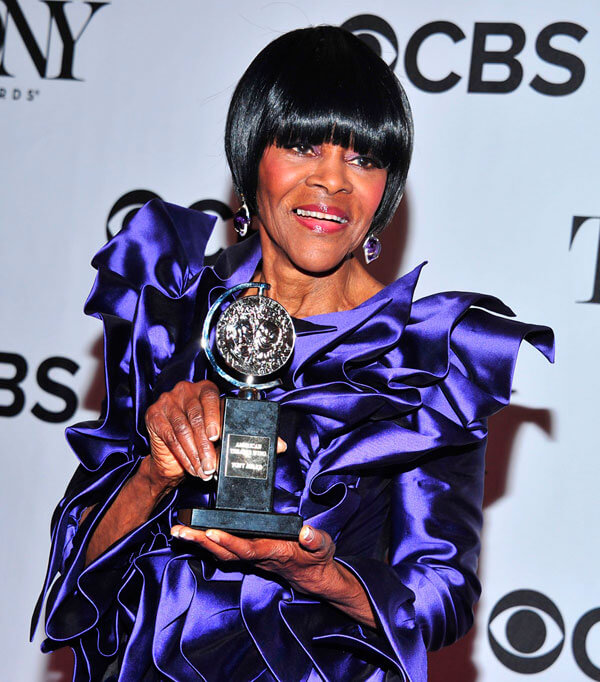Cicely L. Tyson’s parents, both of them immigrants from the island of Nevis, were apparently so deeply religious that their daughter’s desiring to be involved in movies and such was the kind of pursuit deemed forbidden in the household. When, as a working young woman, Tyson decided to give up her secretarial job and go into acting full-time, she and her mother reportedly became estranged for some time. In truth, perhaps condemning Tyson’s choice of profession was a rush to judgment. Whether or not engendered by the environment in which she was reared, Tyson would establish in the industry a reputation for refusing any roles offered her that did not pass the high bar she set for qualitative material.
Raised in Harlem, Tyson’s first taste of being somewhat in the spotlight came after she was selected to be a fashion model, a part-time engagement she undertook while holding down her nine to five office gig. When she gave up her regular employment to concentrate on an acting career, Tyson did so even while being committed to maintaining her own standards for roles she would accept. Many of her career highlights attest to the kind of premium-grade material on which she set her sights from quite early. She won two Emmy Awards for her title role in the epic television presentation “The Autobiography of Miss Jane Pittman” in 1974, for Best Dramatic Performance in a TV special and Actress of the Year. For her memorable performance in the film “Sounder” in 1972, she earned a Best Actress in a Leading Role Academy Award nomination. She received a Golden Globe nomination as well for this portrayal. And she won a Tony Award in 2013 as Best Actress in a play for her Broadway turn in “The Trip To Bountiful.”
For these and other performances over the years in films, on television and in the theater, Tyson garnered many other honors. Although she is herself reported to have commented about having to sometimes endure intervals of “two or three years” between jobs, the roles she was prepared to accept came along often enough to have given her a successful, much respected acting career, more so as far as work of which she could be proud.
Among the films were “A Man Called Adam,” “The Heart Is a Lonely Hunter,” “The River Niger,” “Fried Green Tomatoes” and “The Comedians.” On television, besides dozens of appearances in episodes of various network series, Tyson’s credits in special programming include “Roots,” “A Woman Called Moses,” “The Marva Collins Story,” “King” and “The Rosa Parks Story.” Stage credits, in addition to her Tony Award-winning performance in “The Trip To Bountiful” (an even more notable achievement in that Tyson earned the honor when in her 80s), include “To Be Young, Gifted and Black,” “The Corn Is Green,” “Carry Me Back To Morningside Heights” and “Trumpets of the Lord.”
Tyson has many times demonstrated how dedicated she has been to activity geared toward uplifting people of color, young persons in particular. She is known to have worked with the noted choreographer and long-serving artistic director of the Dance Theatre of Harlem Arthur Mitchell, when he sought to establish that groundbreaking ensemble and training facility in 1969. Also, when it was proposed that the School of Performing and Fine Arts in East Orange, New Jersey bear her name, Tyson accepted the honor, on the understanding that she would thenceforth take a material interest in the school…which she has done, including having reportedly conducted master classes.
The Tyson route to success, as spelled out in the template she has lived, is clearly not a majority view. Aspiration to fame, with all attendant perks, is more likely to be guided by a desire to grab hold of whatever looks good for clearing the next hurdle to a potential jackpot. The Tyson way, of bringing sober, discriminating judgment on what is and isn’t cool to do while in hot pursuit of the good life, is doubtless an outlier position. Be that as it may, a principled, focused Tyson stuck to her guns and evidently would have it no other way if given the opportunity for a do-over. If some of those perks were within easy reach and she chose to not compromise her principles, the presumption must be that she’s today very comfortable in her own skin about how she played it. A legacy framed by the likes of “Sounder,” “The Autobiography of Miss Jane Pittman” et al surely makes for lots of contentment, perks be damned.























